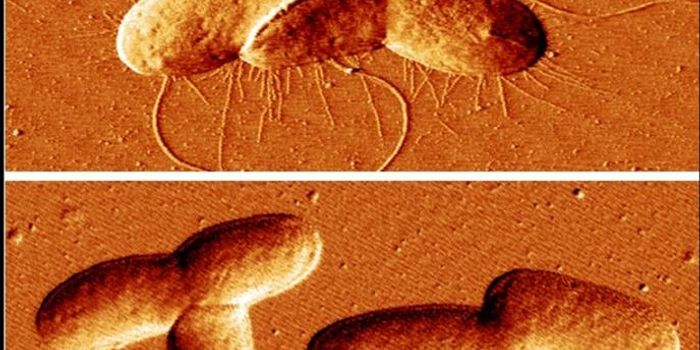'Junk' DNA May Stall Replication, Increasing Cancer Risk
Huge sections of the human genome are made up of highly repetitive sequences, areas where bases like ATATAT repeat in very long strings. For many years, scientists wrote these repetitive sequences off as 'junk DNA,' probably in part because they are so difficult to study. These sequences do not code for protein, can be difficult to amplify by PCR, and are very challenging to sequence, for example. But in recent years, investigators have grown increasingly aware of the importance of at least some of that junk DNA; some of it is involved in regulating other portions of the genome, for example.
While researchers have long thought that repetitive sequences of DNA can interfere with genomic replication, which must happen perfectly every time cells divide, new work has shown why; non-coding DNA seems to stall DNA replication. When that occurs, it can increase the chances that mutations will be introduced into the genome. As mutations in the genome build up, especially when they affect certain places, it can lead to uncontrolled cell division - cancer. The findings have been reported in Nature Communications.
During DNA replication, the two strands of the helix are unwound, and copying machinery moves down the strands producing exact duplicates. In this study, the researchers recreated DNA replication in a tube, and studied it very carefully. They found that when the DNA copying machinery encounters repetitive sequences of DNA, it can unwind the helix, but sometimes, it does not copy the opposite strand of DNA. Replication can stall when that occurs, and if the machinery halts, it seems to the cell that DNA damage has happened.
The researchers suggested that repetitive sequences might initiate a DNA damage and repair response. DNA damage can cause instability in the genome, and is known to promote the development and growth of cancer. The study authors noted that this work adds evidence to the connection between repetitive DNA and cancer.
Certain cancers, like bowel cancer, are thought to be closely linked to errors in non-coding DNA. The researchers suggested that this work could improve diagnostic tools for those disorders or eventually lead to new treatments.
"We now believe that repetitive DNA sequences trigger a response that is very similar to the one induced by DNA damage, which we know can lead to cancer," said study leader Dr. Gideon Coster, a Team Leader at The Institute of Cancer Research, London.
Sources: The Institute of Cancer Research, Nature Communications









